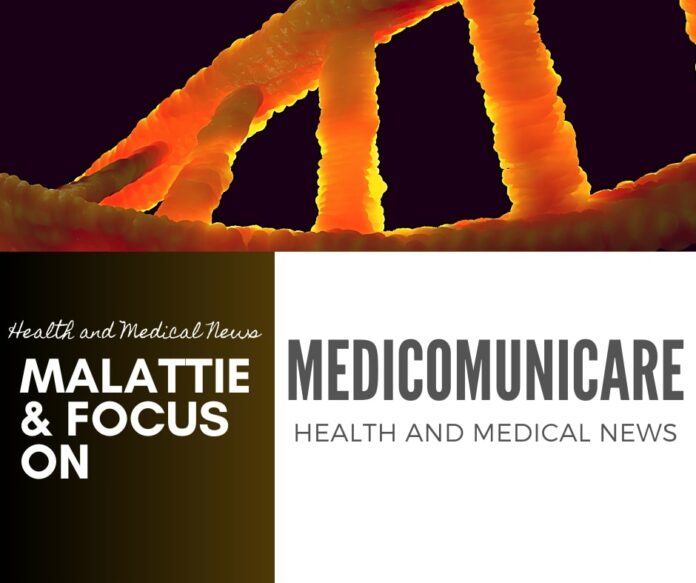I risultati di uno studio clinico randomizzato di fase 2 mostrano che l’aggiunta di vitamina C ad alto dosaggio per via endovenosa (IV) alla chemioterapia raddoppia la sopravvivenza complessiva dei pazienti con cancro al pancreas metastatico in fase avanzata da otto a 16 mesi. I risultati segnano un altro successo per la vitamina C ad alto dosaggio per via endovenosa, che ha superato molti ostacoli nei quasi 20 anni in cui i ricercatori dell’Università dell’Iowa hanno perseverato per dimostrare i suoi benefici per i pazienti oncologici. Nello studio, 34 pazienti con cancro al pancreas metastatico in stadio 4 sono stati randomizzati a ricevere chemioterapia standard (gemcitabina e nab-paclitaxel) o chemioterapia più infusioni di vitamina C ad alto dosaggio. I risultati hanno mostrato che la sopravvivenza complessiva media era di 16 mesi per i pazienti che ricevevano chemioterapia più vitamina C, rispetto agli otto mesi per i pazienti che ricevevano solo chemioterapia. Inoltre, la sopravvivenza libera da progressione è stata estesa da quattro a sei mesi.
Il nuovo studio non è l’unica prova del beneficio dell’inclusione di vitamina C IV come parte del trattamento del cancro. All’inizio di quest’anno, sono stati pubblicati i risultati di un altro studio clinico di fase 2 su pazienti con glioblastoma, una forma mortale di cancro al cervello. Quello studio ha anche mostrato un aumento significativo della sopravvivenza quando la vitamina C IV ad alte dosi è stata aggiunta alla chemioterapia e alle radiazioni standard. Un terzo studio di fase 2 sul cancro polmonare non a piccole cellule è ancora in corso, con risultati previsti entro l’anno. Tutti e tre gli studi sono stati finanziati da una sovvenzione del National Cancer Institute (NCI). Questo finanziamento è stato centrale per condurre questi studi di fase 2 e ottenere questi risultati davvero incoraggianti. L’obiettivo dichiarata è dimostrare che l’aggiunta di vitamina C IV ad alte dosi, che è molto poco costosa e molto ben tollerata, può migliorare il trattamento per questi tumori che sono tra i più mortali che colpiscono la popolazione globale.
I dottori Cullen, Allen e i loro colleghi presso UI Health Care hanno studiato per decenni l’effetto antitumorale della vitamina C ad alto dosaggio per via endovenosa. Il loro lavoro ha rivelato una differenza critica tra la vitamina C somministrata per via endovenosa e la vitamina C assunta per via orale. Somministrare la vitamina C per via endovenosa produce livelli molto elevati nel sangue, che non possono essere raggiunti con la somministrazione orale. Queste alte concentrazioni determinano reazioni chimiche uniche all’interno delle cellule tumorali che rendono le cellule più vulnerabili alle chemio e alle radioterapie. Cullen nota che, nonostante lo scetticismo nei confronti della vitamina C come terapia contro il cancro, i risultati che lui e i suoi colleghi hanno ottenuto, dalle scoperte scientifiche di base alla comprensione dei meccanismi biologici in atto, attraverso i vari studi clinici, sono stati altamente incoraggianti e solidi. I risultati appaiono sul numero di novembre di Redox Biology, una rivista specializzata dedicata principalmente alla scienza di base sui processi redox-dipendenti nella biologia cellulare.
Tuttavia, il Dr. Cullen e il suo laboratorio stanno dedicando sforzi per comprendere l’applicabilità della somministrazione di vitamina C ad alto dosaggio in un altro cancro mortale: il glioblastoma, la forma più aggressiva di cancro al cervello. Qualche tempo prima, uno studio clinico di fase 2 a braccio singolo ha dimostrato un aumento significativo della sopravvivenza complessiva quando l’ascorbato è stato combinato con temozolomide e radioterapia. L’anno scorso ha condotto uno studio clinico di Fase 2 somministrando ascorbato farmacologico (somministrazione e.v. raggiungendo concentrazioni plasmatiche di circa 20 mM. Cinquantacinque partecipanti con glioblastoma di nuova diagnosi sono stati arruolati in questo studio condotto presso l’Università dell’Iowa. I campioni tumorali ottenuti durante la resezione chirurgica sono stati elaborati e colorati per l’espressione del recettore della transferrina e della catena pesante della ferritina. Attraverso l’analisi univariata, è stata osservata una significativa associazione inversa tra l’espressione del recettore della transferrina tumorale e la sopravvivenza complessiva e libera da progressione.
I risultati dello studio precedente hanno allungato la sopravvivenza complessiva da 17,6 a 26,5 mesi, rappresentando un grande passo avanti per il trattamento di questo cancro. Inoltre, poiché la biologia dell’ascorbato e gli effetti tossicologici sui tumori dipendono dal ferro e dal suo metabolismo, i ricercatori ritengono che l’espressione del recettore della transferrina e della catena pesante della ferritina possano rappresentare potenziali marcatori molecolari per predire la risposta al trattamento farmacologico con vitamina C.
- A cura del Dr. Gianfrancesco Cormaci, PhD, specialista in Biochimica Clinica.
Pubblicazioni scientifiche
Bodeker KL et al. Redox Biol. 2024 Nov; 77:103375.
Petronek MS et al. J Neurooncol. 2024; 166(3):493.
Petronek MS et al. Clin Cancer Res. 2023; 30(2):283.
Allen BG et al. Clin Cancer Res. 2019; 25(22):6590.
Schoenfeld JD et al. Redox Biol. 2018; 14:417-22.

